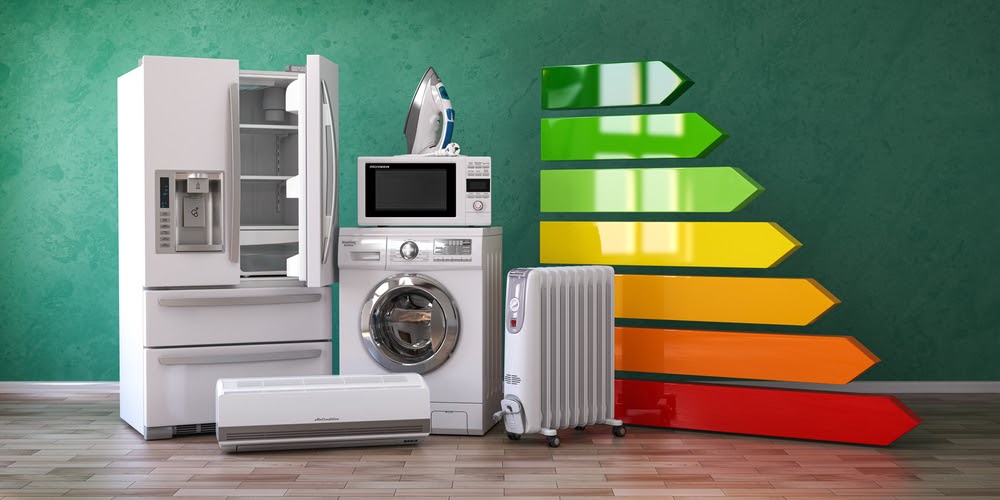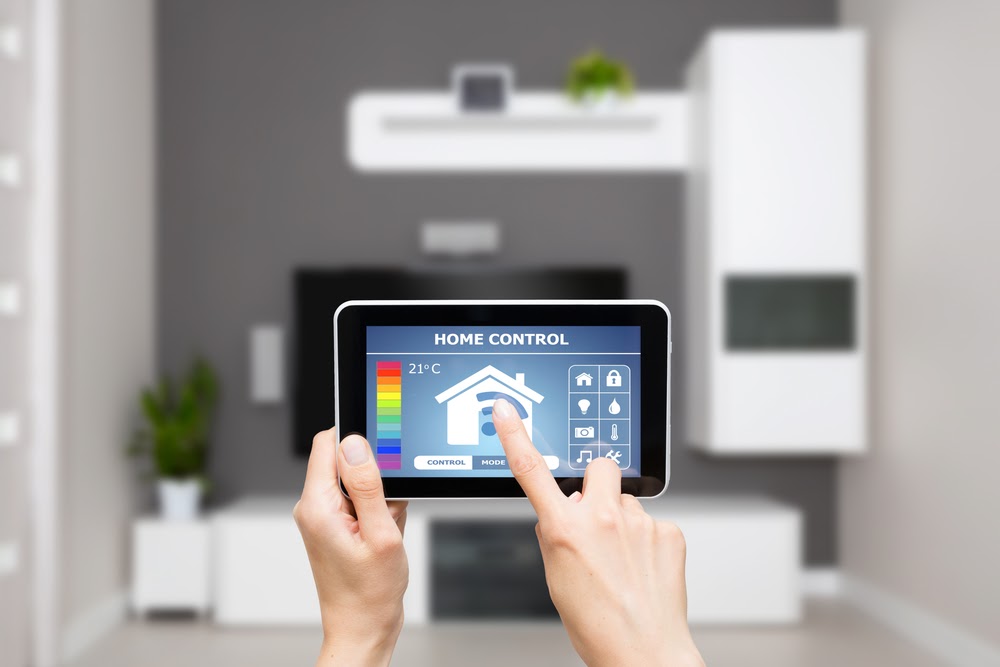How Do You Define Energy Efficiency?
Homeowners might hear the term ‘energy efficiency’ when shopping for new appliances or maybe when making home renovations. But what is energy efficiency? And how can choosing energy-efficient appliances and upgrades benefit homeowners?
ENERGY STAR® defines energy efficiency as using less energy to do the same task. For example, an energy–efficient refrigerator uses less electricity to keep food cool. There are a number of ways that homeowners can embrace energy-efficiency, though. Buying new appliances or making renovations to the home aren’t the only energy-saving solutions.

The Benefits of Energy-Efficient Appliances
Some homeowners might need to replace an outdated or malfunctioning appliance. Maybe the washing machine, dishwasher or even the HVAC has seen better days or is at the end of its lifespan.
Opting for an energy-efficient upgrade could not only decrease a homeowner’s carbon footprint but offer financial savings, too. Since energy-efficient appliances like ENERGY STAR® models use less energy to get the job done, homeowners might see a lower balance on the electricity, water or even gas bill.
While these models might be more expensive, homeowners might discover that the savings they generate over time pays for the initial investment. Savings can vary, though, depending on the appliance that’s being replaced. Fox Business reports that some appliances account for less of the energy cost of a home, so even the energy-efficient upgrade might make a huge dent in the monthly bill.
What Appliances Use the Most Energy?
Homeowners might want to upgrade appliances that zap the most energy or electricity each month. What appliances are the biggest energy drains?
Heating and cooling accounts for more than 40 percent of the home’s energy use each month. Homeowners that need to replace an HVAC might wish to research more energy efficient systems. This could help reduce not only energy use but the price of utility bills, too.
The hot water heater comes in second to the HVAC for energy use in the home. There are a number of energy-efficient options, however.
Appliances zap 13 percent of the home’s energy each month. Refrigerators might be the biggest culprit. After all, these appliances are on 24 hours a day, seven days a week. For homeowners that want to know just how much electricity that fridge is zapping can use ENERGY STAR’S Flip Your Fridge Calculator. This shows how much homeowners will save when choosing an energy-efficient fridge.

Not Yet Ready to Upgrade an Appliance? Try These Tips!
Not every homeowner has the need to upgrade an appliance. Homeowners might not replace an appliance until that older option has hit the end of its life…or the homeowner is moving to a new home and plans to leave appliances behind.
For those who aren’t in need of replacing their appliances, though, there are many ways to make homes more energy efficient. Not ready to upgrade appliances? Try out these energy-saving tips:
Keep Refrigerators Clean and Check the Doors
Keep the fridge coils clean! ENERGY STAR recommends pulling out the owner’s manual for tips on cleaning those coils; also, pull the fridge away from the wall. A little space between the wall and the fridge can help improve air flow, per ENERGY STAR. The site also recommends checking the rubber insulation on the doors periodically.
Also, make sure the doors are fully closed! Homeowners don’t want to waste cold air.
Adjust the Thermostat on the HVAC
Check the thermostat on the furnace and/or air conditioning. During summer, opt for warmer temps that are still comfortable. Setting the thermostat down to 70 degrees Fahrenheit in the summer could leave homeowners with a high energy bill!
Only Wash Full Loads of Clothes, and Don’t Overload the Dryer
To conserve energy, only wash full loads of clothes. Washing smaller loads could just add to the energy cost. And don’t overload the dryer. This might put strain on the dryer, and homeowners will likely notice that clothes don’t get fully dry. Clothes might even come out wrinkled!
Wash Full Loads of Dishes
Like the washing machine, the dishwasher should only be turned on when the load is full. Again, washing smaller loads is just an inefficient use of energy.
Check Insulation and the Windows
During winter, is the home drafty? In summer, do some rooms always feel hotter? There could be an issue with the insulation of the home or even the windows. Check for air leaks that could make the HVAC kick on more often. Don’t forget to check the attic, too! A sign to look for related to attic insulation is melted snow on the roof during winter. This means that heat is escaping.
Energy efficient appliances and upgrades use less energy to do the same job. While not all homeowners are in the market to upgrade an appliance, homeowners can make other simple changes around the home to increase energy efficiency and, hopefully, save money, too!


